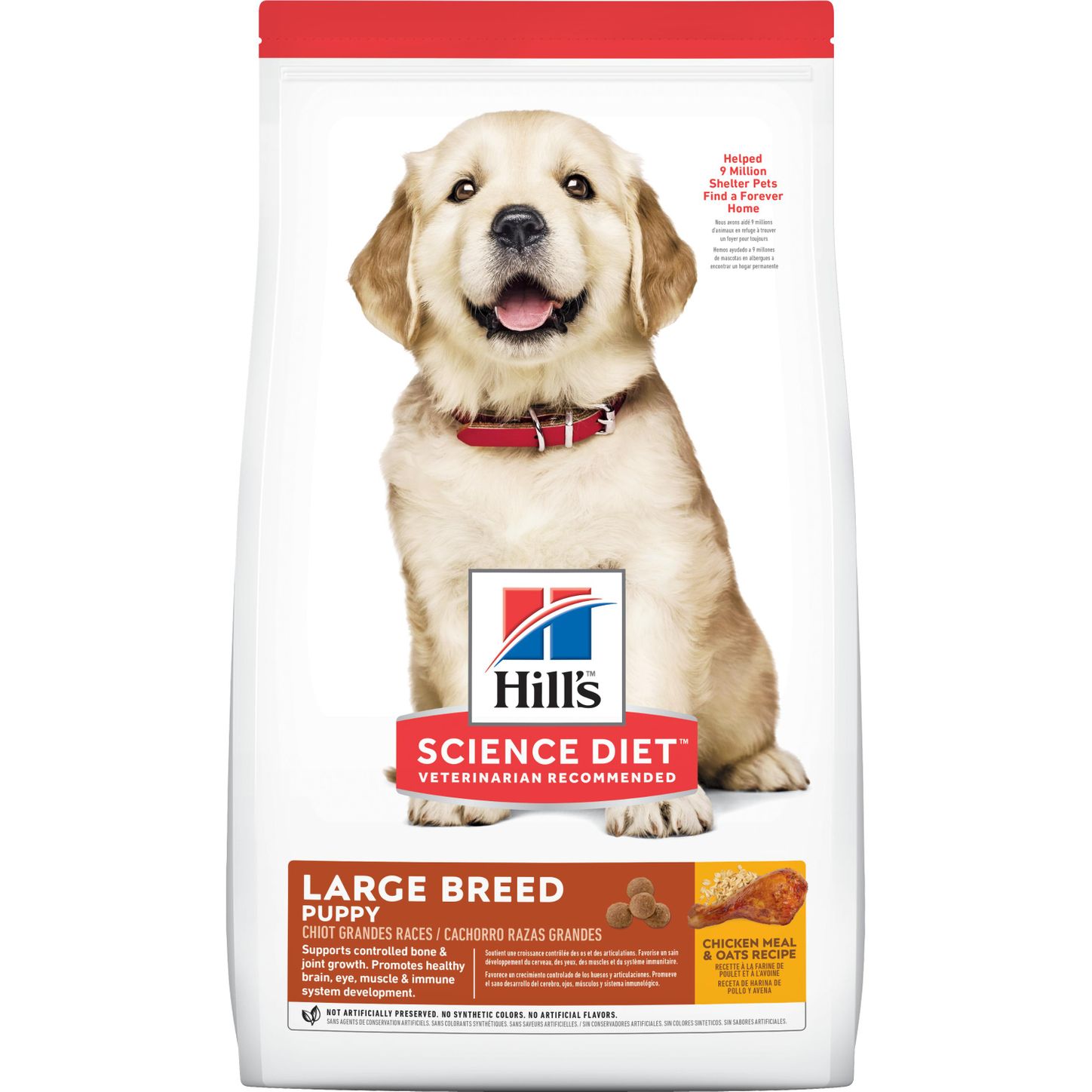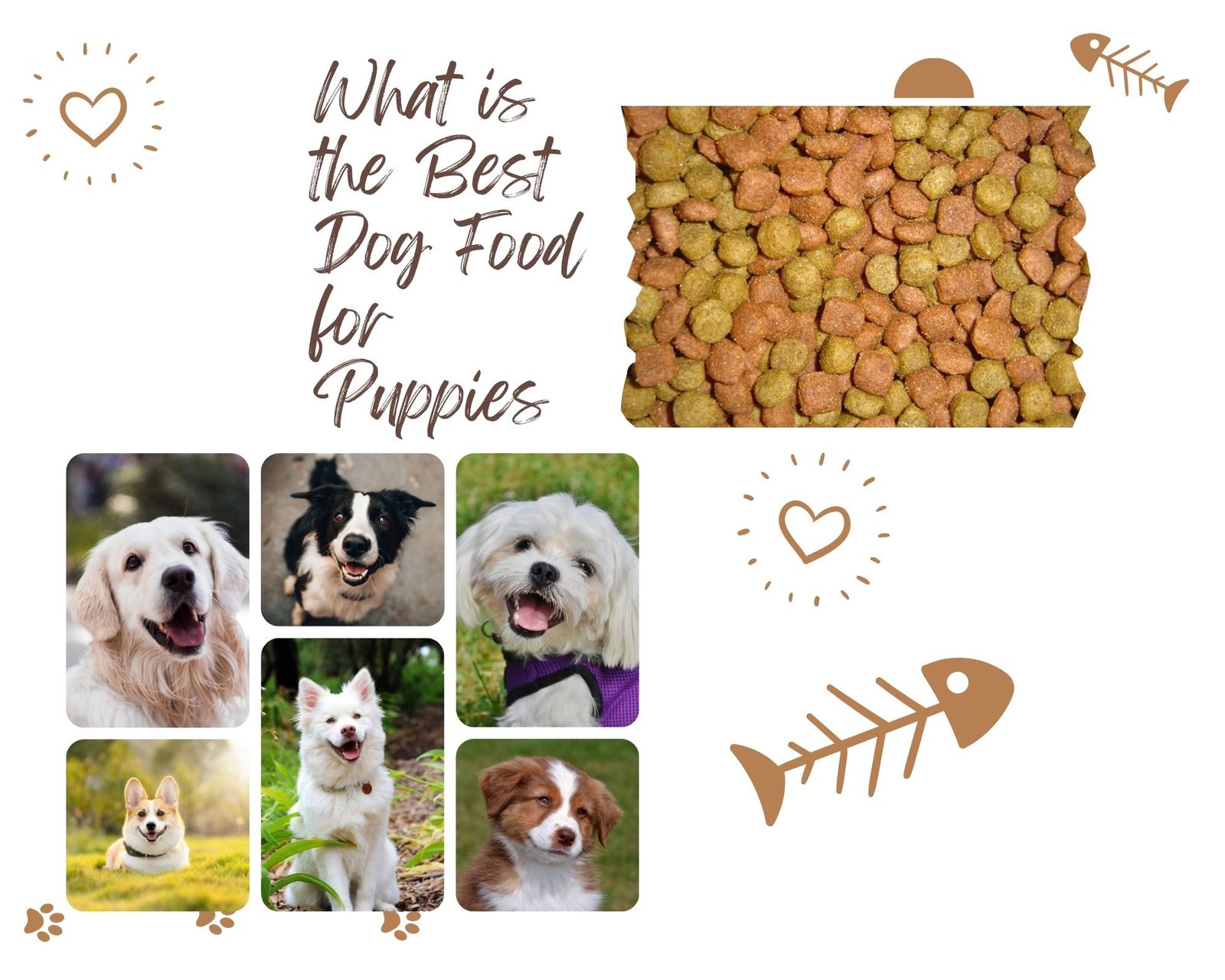Find out what is the best dog food for puppies. The best dog food for puppies is formulated explicitly for their growth and development, with a good balance of protein, fat, and essential nutrients. Puppies have special dietary requirements that should be carefully considered.
Providing them with a high-quality, well-balanced diet is essential for their health and well-being. When choosing puppy food, look for options formulated to meet the specific nutritional requirements of growing dogs. It’s essential to select a food with the right balance of protein, fat, and nutrients to support their development.
Additionally, consider the size and breed of your puppy, as these factors can also influence their nutritional needs. By prioritizing the dietary needs of your puppy, you can ensure they have the best possible start in life.
What is the Best Dog Food for Puppies? Read the full post for more details about this
:strip_icc()/Purina-Pro-Plan-High-Protein-Puppy-Food-c8d3fbf7961f4678ac48c7e78a046392.jpg)
Credit: www.thesprucepets.com
Importance Of Quality Nutrition
Nutritional Needs Of Puppies
Puppies require certain diets in order to promote their quick development and growth. A balanced diet that provides essential nutrients such as protein, fat, carbohydrates, vitamins, and minerals is crucial. Optimal nutrition is required to maintain healthy bones, muscles, and organs in growing puppies.
Impact Of Nutrition On Puppy Growth
Quality nutrition directly impacts the growth and overall well-being of puppies. Proper nutrition during the early stages of life supports cognitive development, immune system function, and healthy weight management. Inadequate nutrition can lead to developmental delays and health issues in puppies. Providing high-quality puppy food is essential for their growth and long-term health.
What is the Best Dog Food for Puppies? Click here for more details: Click here

Credit: www.thedodo.com
Understanding Puppy Food Options
Commercial Puppy Food
Commercial puppy foods are convenient and packed with essential nutrients for your growing pup.
Homemade Puppy Food
Homemade puppy food offers control over ingredients, catering to your puppy’s dietary needs.
Also click here for more details about dog food : click here
Critical Nutrients For Puppy Health
Proper nutrition is crucial for the healthy development of a puppy. As energetic bundles of joy, puppies require a balanced diet with the essential nutrients they need to grow, thrive, and reach their full potential. Protein and essential fatty acids are two critical nutrients that are crucial in their overall health and development.
Protein For Growth And Muscle Development
Puppies experience rapid growth, and their bodies require adequate protein to support this development. Protein is essential for forming new tissues, including muscles and organs. It also plays a vital role in repairing cells and supporting the immune system, helping puppies to stay healthy and strong. When choosing a dog food for your puppy, look for one that lists high-quality protein sources, such as chicken, turkey, beef, or fish, as the main ingredient. This ensures your puppy receives the amino acids necessary for optimal growth and muscle development.
Essential Fatty Acids For Brain Development
The brain is a vital organ that undergoes significant development during a puppy’s early stages of life. Essential fatty acids, particularly omega-3 and omega-6 fatty acids, are crucial for the healthy development of the brain and nervous system. These fatty acids support cognitive function, learning, and memory, ensuring your puppy reaches its full intellectual potential. Look for dog foods containing essential fatty acid sources, such as fish oil or flaxseed, to provide your puppy with these crucial nutrients. Including these in their diet will help promote optimal brain development and a sharp mind.
Avoiding Harmful Ingredients
Choosing the right food for your puppy is crucial for their growth and well-being. Puppies have specific nutritional needs, and providing them with a balanced diet that avoids harmful ingredients is essential. In this section, we will discuss two main culprits – artificial additives and excessive fillers and preservatives – that you should be aware of when selecting the best dog food for your furry friend.
Artificial Additives
Artificial additives are substances added to commercial puppy food to enhance its taste, texture, and appearance. While they may make the food more appealing, many additives can adversely affect your puppy’s health.
Some common artificial additives to avoid include:
- Artificial colors: These synthetic dyes not only serve no nutritional purpose but can also be linked to allergic reactions and behavioral problems in puppies.
- Artificial flavors: These lab-made flavors may entice your puppy to eat but often contain chemicals that can cause digestive upset and sensitivities.
- Artificial preservatives: These chemical preservatives, such as BHA, BHT, and ethoxyquin, help extend the shelf life of puppy food but have been associated with various health issues, including cancer.
When choosing puppy food, select brands that use natural ingredients and rely on natural preservatives such as vitamins E and C.
Excessive Fillers And Preservatives
Another ingredient category to avoid when selecting puppy food is excessive fillers and preservatives. These ingredients offer little to no nutritional value and can even harm your puppy’s health in the long run.
Here are some joint fillers and preservatives to watch out for:
| Fillers | Preservatives |
|---|---|
|
|
Fillers like wheat, corn, soy, and rice provide little nutritional value for your puppy and are often included to bulk up the food inexpensively. These ingredients can lead to allergies, digestive issues, and obesity.
Preservatives such as propylene glycol, BHA, and BHT help extend the shelf life of puppy food, but they have been linked to health problems like liver and kidney damage. Opt for puppy food free from these fillers and preservatives, or choose products that use healthier alternatives such as whole grains and natural preservatives.
Transitioning To New Foods
Transitioning to new foods is an essential process for puppies to ensure they receive the proper nutrients and adapt to changes in their diet. It’s necessary to make this transition gradually to prevent digestive issues and allow the pup to adjust smoothly. Here are some key points to consider when transitioning your puppy to a new diet.
Gradual Diet Changes
When transitioning to new food, it’s crucial to introduce it gradually to prevent digestive upset. Start by mixing a small amount of the new food with the old food, gradually increasing the proportion of the new food over 7-10 days. This gradual transition helps the puppy’s digestive system adapt to the new diet without causing any stress.
Signs Of Food Allergies
Monitoring your puppy for any signs of food allergies during the transition is essential. Some common signs of food allergies in puppies include itching, skin redness, ear infections, vomiting, or diarrhea. If you notice any of these symptoms, consult your veterinarian to determine the cause and make necessary adjustments to the puppy’s diet.

Credit: nymag.com
Considerations For Large Breed Puppies
When it comes to feeding large-breed puppies, several important considerations must be made. Their growth and development depend on getting the proper nourishment. One key factor to focus on is maintaining the right levels of calcium and phosphorus.
Calcium And Phosphorus Levels
Large-breed puppies have unique nutritional needs, and this includes the appropriate amounts of calcium and phosphorus in their diet. These minerals play a vital role in the development of strong bones and teeth. Striking the right balance is important, as too much or too little of these minerals can negatively impact a puppy’s overall growth and skeletal health.
High levels of calcium can increase the risk of developmental orthopedic diseases, such as hip dysplasia or osteochondrosis. Conversely, insufficient amounts of calcium and phosphorus can cause skeletal abnormalities and weak bones.
To ensure your large-breed puppy receives the right balance, it is crucial to choose a dog food specifically formulated for its needs. These formulas are designed to provide the correct amount of calcium and phosphorus, tailored to support the healthy growth of large-breed puppies.
Slow Growth For Joint Health
Large breed puppies have a higher risk of joint issues later in life, such as hip or elbow dysplasia. Promoting slow and controlled growth is essential to reduce the stress placed on their developing joints. By regulating growth, you can support the long-term joint health of your furry friend.
Choosing a dog food that supports slow growth is crucial for large-breed puppies. These formulas are typically lower in calories and have controlled fat and protein levels. This controlled growth approach ensures that your puppy’s bones, muscles, and joints develop steadily and healthily.
In addition to feeding the right dog food, implementing exercise routines suitable for large-breed puppies can help maintain strong joints and muscles. Low-impact exercise, like swimming, can particularly benefit their joint development.
To summarize, when choosing the best dog food for your large breed puppy, pay close attention to the calcium and phosphorus levels and the promotion of slow growth. By providing the appropriate nutrition and support, you can help ensure your puppy grows into a healthy and happy adult dog.
Consulting A Veterinarian
Consulting a Veterinarian is crucial when selecting the best dog food for puppies.
Health And Dietary Assessment
To comprehensively evaluate your puppy’s needs, a vet will conduct a health and dietary assessment.
A vet will consider any existing health conditions and dietary restrictions.
Breed-specific Nutritional Needs
Vets can advise on breed-specific nutritional requirements for optimal growth and development.
Conclusion And Recommendations
Explore the best dog food for puppies to provide optimal nutrition. Ensure a balanced diet to support their growth and development. Recommendations include high-quality, protein-rich options for overall well-being and vitality.
Choosing The Best Food For Your Puppy
The key to your puppy’s health starts with choosing the best food. Look for high-quality options with premium ingredients like real meat and whole grains.
Building A Healthy Feeding Routine
Establishing a routine is crucial for your puppy’s growth. Feed them at consistent times throughout the day to maintain their energy levels.
Consult your vet to determine the best food for your puppy’s needs. Remember, a balanced diet is the foundation of a happy and healthy pup!
What is the Best Dog Food for Puppies? For more details about this, go through the questions below.
Frequently Asked Questions
What is the Best Dog Food for Puppies?
The best dog food for puppies is formulated explicitly for their growth and development, with a good balance of protein, fat, and essential nutrients. Puppies have special dietary requirements that should be carefully considered.
What Food Is Best For Puppies?
The best food for puppies is high-quality, balanced puppy food with essential nutrients for growth and development. Look for brands with real meat as the main ingredient and avoid artificial additives. Consult a veterinarian for specific dietary recommendations based on the puppy’s breed and size.
What Is The Healthiest Puppy Food?
Opt for puppy foods rich in high-quality proteins, essential nutrients, and no artificial additives for optimal health.
What Is The Ideal Food For A Puppy?
The ideal food for a puppy is high-quality puppy-specific dog food to support growth and development. The food should be labeled as complete and balanced, with ingredients suitable for puppies.
What Is The Best First Food For Puppies?
The best first food for puppies is a high-quality food specifically formulated for their nutritional needs. It should be rich in protein and essential nutrients to support their growth and development. Gradually introduce the new food to prevent digestive upset.
Conclusion
Picking the right food for your puppy is crucial for their health and well-being. Focusing on high-quality ingredients and a balanced diet ensures your furry friend grows up strong and happy. Remember to consult your vet for personalized recommendations, and enjoy watching your puppy thrive!

Hello I am Farhana I have been doing research on dogs since last 10 years. I have been doing research on dog special parts or dog food since last 10 years. I have gained knowledge about my dog in these ten years so. I want to blog about it daily.

